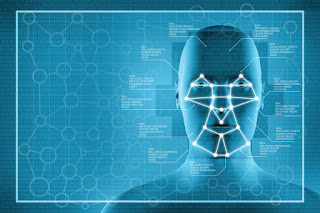IDing 1 Person in a Billion In 1 Second
Facial Recognition Tech IDing Your Face
Sherlock Holmes Real-Time
First off, facial recognition technology is awesome and the speed and breadth of its takeoff are breathtaking. It's 2018's exponential high tech version of 19th century fingerprinting and it's redefining global crimefighting. Sherlock Holmes would have loved it. But it has some big privacy issues along with steroid-like growth that can be disruptive.
Breakthrough Innovation Ahead of Regulatory Curves
It's come on so fast that it's outpacing national and global regulations and leaves open the question of protecting personal privacy. A Russia based company FindFace claims to be able to identify one person in a billion photos in under 1 second. The company behind it, NTechLab, has developed a proprietary algorithm. They're selling FindFace globally.
Global Face Recognition Players Beyond Russia Tech
FaceFind isn't alone. Big global tech players like Amazon, Microsoft, NEC and Cognitec are widening their facial recognition offerings. One reason is costs of the hardware and software that support the systems are less expensive. But, the major reason for investing in facial recognition is exploding growth and demand.
For instance, Amazon is selling its system Rekognition to law enforcement authorities. Two dozen civil rights organization just asked them to stop. Amazon's tech can detect on-spot up to 100 faces in extremely crowded conditions, as well as licenses from traffic cameras. Critics say it's possible that innocent bystanders and drivers could be ensnared in this revolutionary tech.
Recognizing Rekognition and the Market
The market for face recognition tech didn't exist 5 years ago because the tech wasn't there. It's here now and it's exploding. For instance, in the US, 16 states let the FBI use the tech to compare faces of suspected criminals to drivers licenses and ID photos. The FBI's data base of photo faces is 400 million and counting.
The state of Maryland, which has an advanced facial ID system, has millions of face photos from drivers licenses in its data base. Multiply that by 49 other states, other US, state and local government agencies and then add on global databases. The data banks are huge. These are mostly civilian data bases now being checked for criminals. That raises legal rights issues.
Personal Privacy Issues & System Successes - Conflicting Needs to be Addressed
Bottom-line on this. This amazing tech is being deployed globally. Singapore's Changa Airport is testing it right now to speed passengers through and they hope to have a full system in place within a year. In Annapolis, MD, the tech identified the shooter at The Capital Gazette newsroom who refused to cooperate with police.
No doubt, this is incredibly useful and life-saving tech. But it's capable of mistakes if photo qualities are poor and the data bank is big. So globally, companies and authorities need to set the stage and let this incredible technology do what it can to help humanity, without breaking legal rights. It could be picture perfect technology.
 |
| Face Recognition ID: Spotting and Defining Your Face |
Sherlock Holmes Real-Time
First off, facial recognition technology is awesome and the speed and breadth of its takeoff are breathtaking. It's 2018's exponential high tech version of 19th century fingerprinting and it's redefining global crimefighting. Sherlock Holmes would have loved it. But it has some big privacy issues along with steroid-like growth that can be disruptive.
Breakthrough Innovation Ahead of Regulatory Curves
It's come on so fast that it's outpacing national and global regulations and leaves open the question of protecting personal privacy. A Russia based company FindFace claims to be able to identify one person in a billion photos in under 1 second. The company behind it, NTechLab, has developed a proprietary algorithm. They're selling FindFace globally.
Global Face Recognition Players Beyond Russia Tech
FaceFind isn't alone. Big global tech players like Amazon, Microsoft, NEC and Cognitec are widening their facial recognition offerings. One reason is costs of the hardware and software that support the systems are less expensive. But, the major reason for investing in facial recognition is exploding growth and demand.
For instance, Amazon is selling its system Rekognition to law enforcement authorities. Two dozen civil rights organization just asked them to stop. Amazon's tech can detect on-spot up to 100 faces in extremely crowded conditions, as well as licenses from traffic cameras. Critics say it's possible that innocent bystanders and drivers could be ensnared in this revolutionary tech.
Recognizing Rekognition and the Market
The market for face recognition tech didn't exist 5 years ago because the tech wasn't there. It's here now and it's exploding. For instance, in the US, 16 states let the FBI use the tech to compare faces of suspected criminals to drivers licenses and ID photos. The FBI's data base of photo faces is 400 million and counting.
The state of Maryland, which has an advanced facial ID system, has millions of face photos from drivers licenses in its data base. Multiply that by 49 other states, other US, state and local government agencies and then add on global databases. The data banks are huge. These are mostly civilian data bases now being checked for criminals. That raises legal rights issues.
Personal Privacy Issues & System Successes - Conflicting Needs to be Addressed
Bottom-line on this. This amazing tech is being deployed globally. Singapore's Changa Airport is testing it right now to speed passengers through and they hope to have a full system in place within a year. In Annapolis, MD, the tech identified the shooter at The Capital Gazette newsroom who refused to cooperate with police.
No doubt, this is incredibly useful and life-saving tech. But it's capable of mistakes if photo qualities are poor and the data bank is big. So globally, companies and authorities need to set the stage and let this incredible technology do what it can to help humanity, without breaking legal rights. It could be picture perfect technology.
%20(1)%20(1)%20(3)%20(2)%20(2).jpg)


Comments
Post a Comment